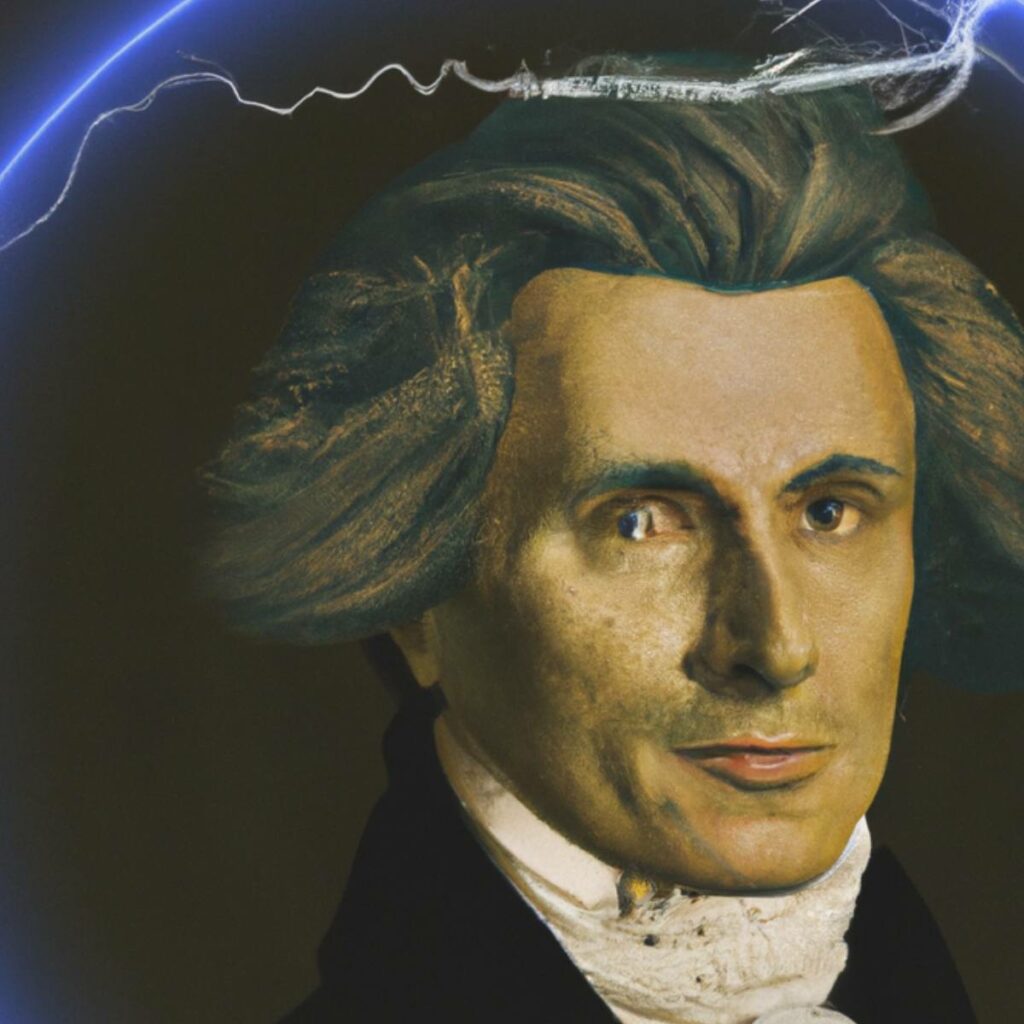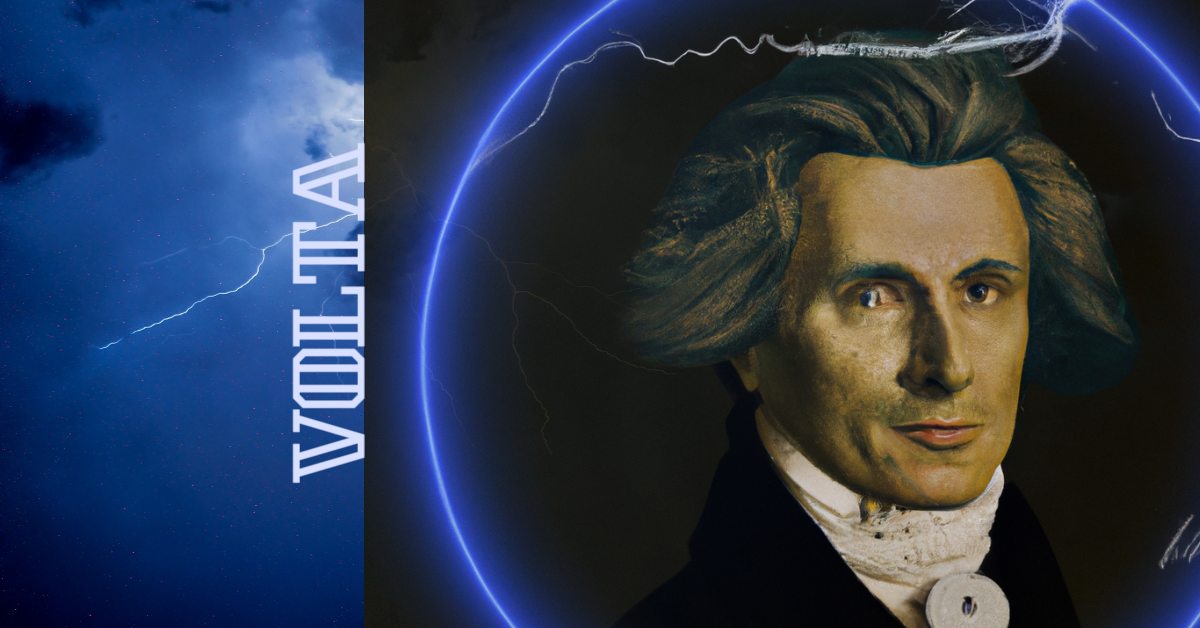Count Alessandro Giuseppe Antonio Anastasio Volta was born on February 18, 1745, in Como, Lombardy, to a noble family that had lost some of its social status. Unlike his siblings, young Alessandro did not enter the religious life.
As a child, he did not show signs of being a prodigy, and his family thought he was developmentally delayed until the age of seven. At fourteen, he decided to become a physicist and became fascinated with electricity, writing a Latin poem on the subject.
Volta’s inventions and discoveries include the electrophorous, a charge-accumulating machine, and his most significant achievement, the invention of the electric battery in 1800.
His work with the electric current and the discovery of methane helped to establish him as a renowned physicist. Volta was also a professor of physics in the Como high school and at the University of Pavia.
In 1778, Volta was the first to isolate the compound methane, a major constituent of natural gas. Further, in 1779, he received a professorial appointment at the University of Pavia, where he continued his work with electricity.

He invented other gadgets involving static electricity and received the Copley medal of the Royal Society, where he was elected to membership, in 1791.
The major feat of his life involved not static electricity, but dynamic electricity – electric current. Following the experiments of Galvani, who was a friendly rival, who sent copies of his papers on the subject, Volta attacked the question of whether the electric current resulting when muscle was in contact with two different metals arose from the tissue or from the metals.
To check this he decided in 1794 to make use of the metals alone, without the tissue. He found at once that an electric current resulted and maintained that it therefore had nothing to do with life or tissue. Put another way, he believed in a chemical (not “animal”) basis for electrical phenomena.
Volta was respected by his peers and received numerous honors, including the Legion of Honor, and was made a count and senator of the kingdom of Lombardy. The unit of electromotive force, the “volt,” is named after him, and his work continues to influence the development of modern-day batteries. Volta remained politically savvy throughout his life, adapting to changing governments in Italy and continuing to receive high honors for his work.
Alessandro Volta FAQs
- He was a professor of physics: Volta was appointed professor of physics at the Royal School of Como in Italy when he was just 27 years old. Later, he held the position of professor of experimental physics at the University of Pavia for almost 40 years.
- His invention of the electric battery: Volta invented the first electric battery, known as the voltaic pile, in 1800. This invention revolutionized the study of electricity and laid the foundation for the development of modern electrical technology.
- He was a pioneer in the study of gases: Volta’s work on the chemistry of gases led him to discover methane, which he called “flammable air.” He also conducted experiments on the properties of carbon dioxide, nitrogen, and hydrogen.
- He had a rivalry with Galvani: Volta had a long-standing rivalry with fellow Italian physicist Luigi Galvani over the nature of electricity. Galvani believed in animal electricity, while Volta believed in a chemical basis for electrical phenomena.
- He was a member of the Royal Society: Volta was elected a foreign member of the Royal Society of London in 1794, in recognition of his contributions to science. He was also a member of several other scientific societies, including the French Academy of Sciences and the Royal Society of Sciences in Sweden.

